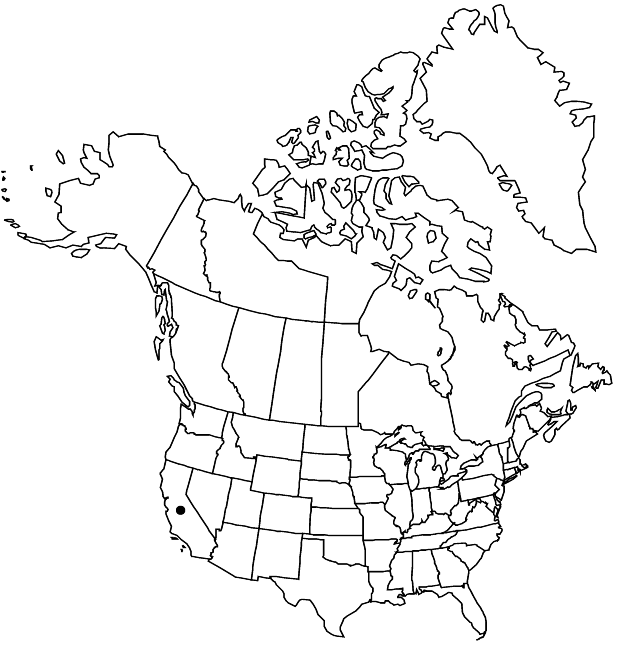Difference between revisions of "Heuchera abramsii"
in N. L. Britton et al., N. Amer. Fl. 22: 109. 1905 ,.
imported>Volume Importer |
imported>Volume Importer |
||
| Line 50: | Line 50: | ||
|publication year= | |publication year= | ||
|special status=Endemic | |special status=Endemic | ||
| − | |source xml=https:// | + | |source xml=https://bitbucket.org/aafc-mbb/fna-data-curation/src/2e0870ddd59836b60bcf96646a41e87ea5a5943a/coarse_grained_fna_xml/V8/V8_192.xml |
|genus=Heuchera | |genus=Heuchera | ||
|species=Heuchera abramsii | |species=Heuchera abramsii | ||
Latest revision as of 22:42, 5 November 2020
Herbs subcaulescent; caudex branched. Flowering stems 6–15 cm, short stipitate-glandular. Leaves: petiole glabrous or short stipitate-glandular and scattered medium stipitate-glandular; blade ovate, deeply 5-lobed, 0.5–2 cm, base truncate or shallowly cordate, lobes rounded, margins dentate, apex obtuse, surfaces short stipitate-glandular abaxially, sparsely long stipitate-glandular adaxially. Inflorescences dense. Flowers: hypanthium strongly bilaterally symmetric, free 1.5–2 mm on adaxial side, reddish purple, cylindric, 4–5 mm, short stipitate-glandular proximally, medium stipitate-glandular distally; sepals spreading, green-tipped, unequal, 1.2–1.5 mm, apex obtuse or rounded; petals spreading, white, spatulate or oblanceolate, rarely linear, unlobed, 1.5–2.5 mm (equaling or longer than sepals), margins entire; stamens barely included to 1.5 mm exserted; styles exserted 1.5–2 mm, 2.5–3 mm, 0.1+ mm diam. Capsules ovoid, 3.5–5 mm, beaks divergent, not papillose. Seeds dark brown, ellipsoid, 0.6 mm.
Phenology: Flowering Jul–Aug.
Habitat: Rocky soil in red fir forest
Elevation: 2800-3100 m
Discussion
Heuchera abramsii occurs in the San Antonio Mountains and the eastern part of the San Gabriel Mountains, San Bernardino and Los Angeles counties. It closely resembles H. brevistaminea, H. caespitosa, H. elegans, and H. pulchella.
Selected References
None.
